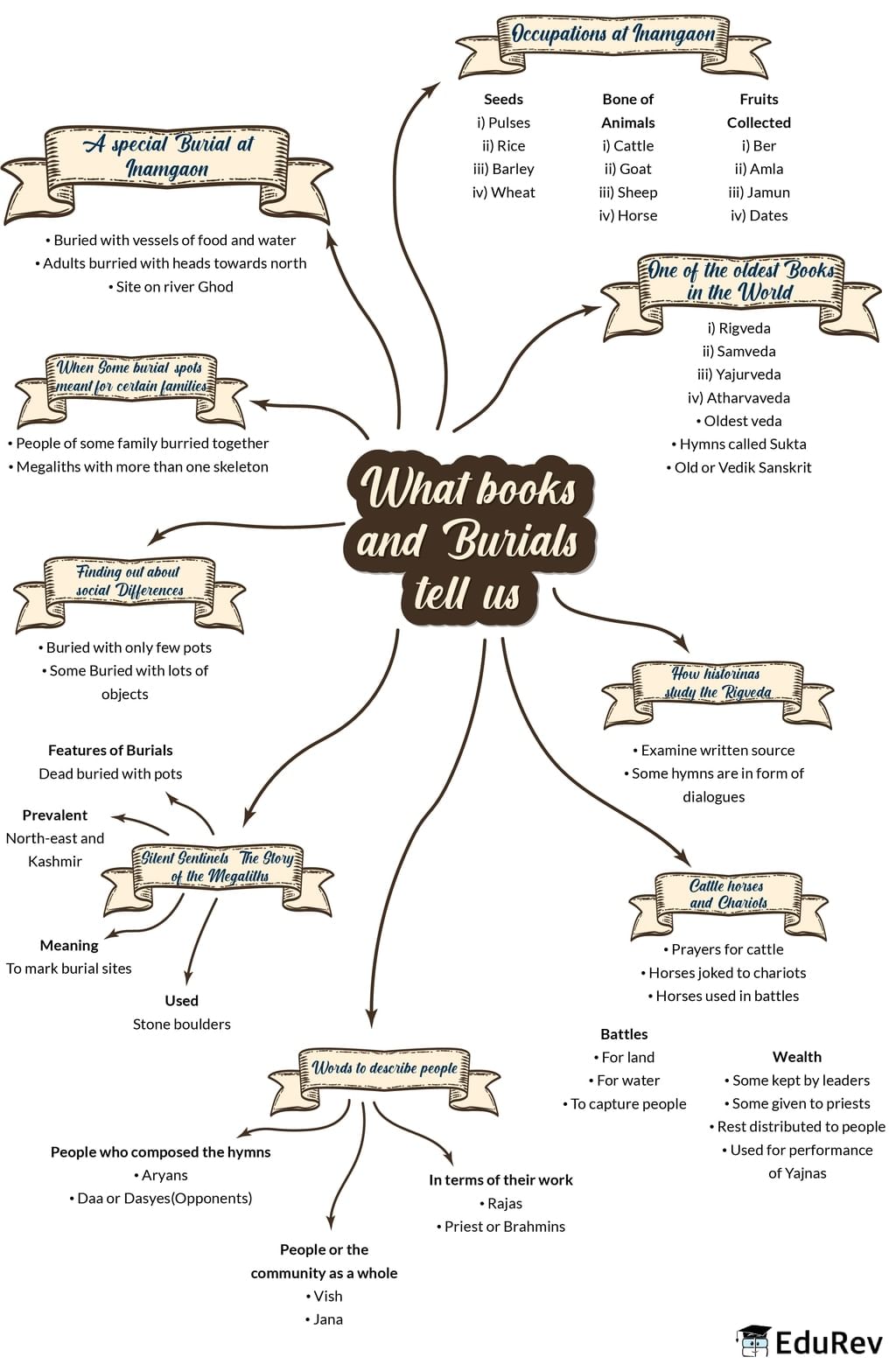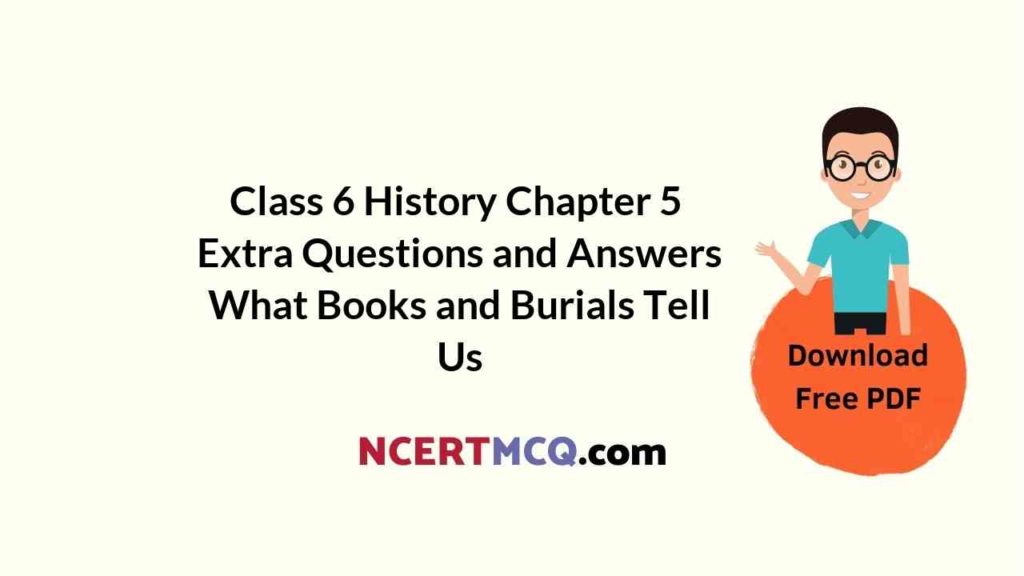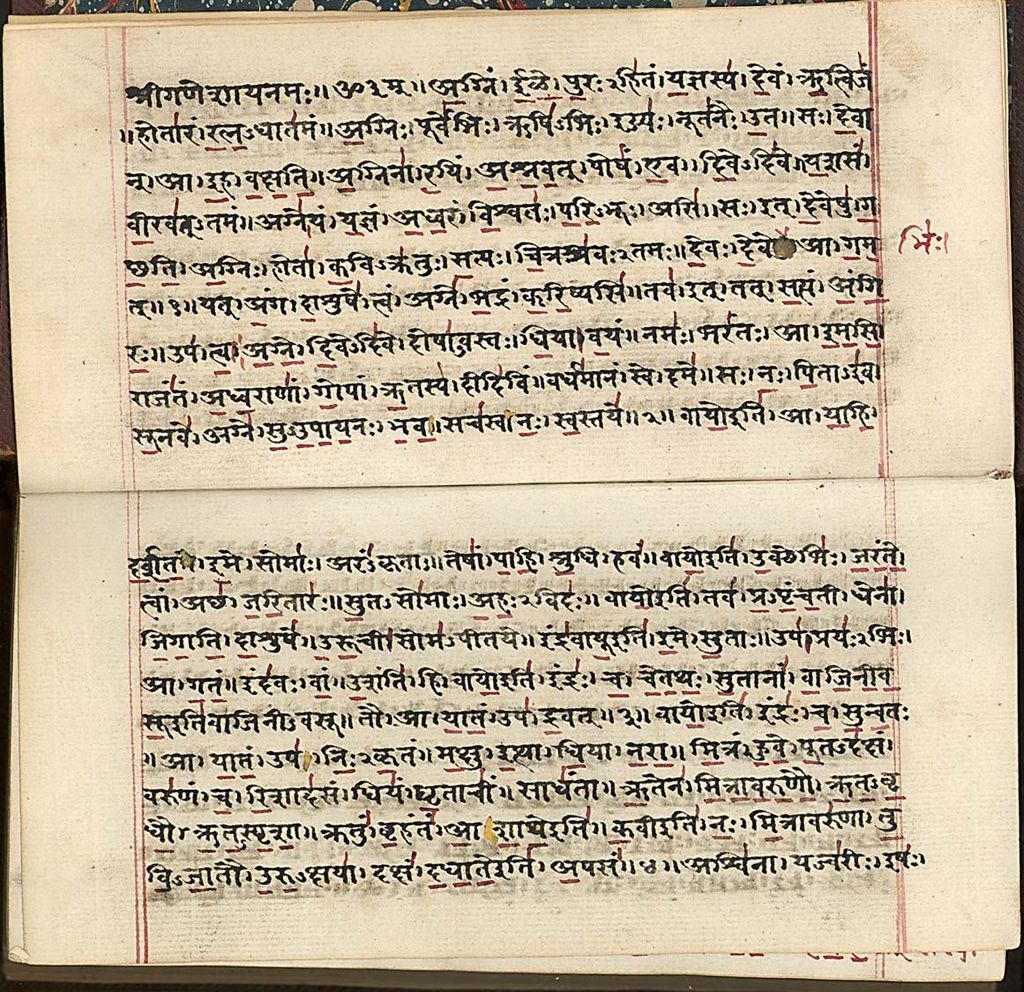
Mindmap What books and burials tell us Social Studies (SST) Class 6 PDF Download
What Books and Burials Tell Us Q20. Why were portholes used for? Ans. Portholes were used as an entrance. Through these portholes the bodies of family members who died later were brought into the grave. Q21. Which two words were used to describe the people or the community as a whole? Ans.

NCERT Solutions Class 6 Social Science History Chapter 4 What Books and Burials Tell Us NCERT
WHAT BOOKS AND BURIALS TELL US I. NAME THE FOLLOWING. 1. A book on medicine written by Charaka. ______________________ 2. Men and women captured in war and treated as the property of their owners. ___________________ 3. The thousand hymns in the Rigveda meaning "well-said". ______________ 4. The people who composed the hymns. ________ 5.

CBSE Class 6 Social Science (History) Chapter 4 What Books And Burials Tell Us CBSE Study Group
What Books and Burials Tell Us Class 6 Extra Questions Very Short Answer Type Question 1. For which three things in Rigveda were the prayers performed especially? Answer: There are many prayers in the Rigveda for (a) Cattle, (b) Children (especially for sons), and (c) horses, which were yoked to Chariots. Chariots were used in battles. Question 2.

Online Education for Class 6 History Chapter 5 Extra Questions and Answers What Books and
History - Class 6. Global search Close. Global search. Toggle search input. Worksheets. English.. What Books and Burials Tell Us - Questions; What Books and Burials Tell Us - Questions. Q1. Fill in the blanks.. What Books and Burials Tell Us Worksheet 1. Jump to. Disclaimer. All contents provided by us are based on best of our knowledge

What Books and Burials Tell Us Class 6 History Class 6 History Chapter 4 NCERT History
The Worksheet Solutions: What Books and Burials Tell Us is an invaluable resource that delves deep into the core of the Class 6 exam. These study notes are curated by experts and cover all the essential topics and concepts, making your preparation more efficient and effective.

WHAT BOOKS AND BURIALS TELL US Class 6 Social Science 3 PM class By Reema Ma'am L5 YouTube
What Books and Burials Tell Us 1. What are Vedas? How many Vedas are there? 2. Was iron used in the Harappan cities? 3. Can we make out whether a skeleton was that of a man or a woman? 4. Port-holes were used for ——————— 5. Megaliths are found in ———————— 6. In what ways are the books we read today different from the Rigveda? 7.

What Books and Burials Tell Us Class 6 Notes History Chapter 5 (Updated for 202324) • cbseBoy
What Books and Burials Tell Us Q1. Fill in the blanks. i. The Rigveda has been written in Sanskrit. ii. Inamgaon is situated on the river Ghod. iii. The Rigveda was composed about 3500 years ago. iv. Sanskrit is part of a family of languages known as Indo-European. v. The major gods praised in the hymns of the Rigveda were Agni, Indra, and Soma.

What Books and Burials Tell Us Class 6 History C4
Answer 2:-. (a)Slaves were used for work. (b)Megaliths are found in South India, North East and Kashmir. (c)Stone circles or boulders on the surface were used to indicate the exact place of burial. (d)Port-holes were used for burying other members of the same family at the same place. (e)People at Inamgaon ate wheat, barley, rice, pulses.

What Books and Burials Tell Us Full Chapter Explanation Class 6 History Chapter 4 YouTube
What Books and Burials Tell Us Class 6 MCQs Questions with Answers Question 1. Stone circles or boulders on the surface were used to cover the (a) All of these (b) Burial places (c) House (d) Port holes Answer Question 2. A popular drink ________ was prepared from milk and juice of a rare plant that grew on the mountains (a) Butter (b) Soma

Class 6 History chapter 4 What Books and Burials Tell Us Full Chapter Easy Explanation YouTube
Answer: Work South India, north-east and Kashmir indicate the exact place of burial burying the other member of the same family at the same place wheat, barley, rice, pulses, millets, peas, sesame, etc. 3. In what ways are the books we read today different from the Rigveda? Ans: The books we read today are written and printed.

What Books and Burials tell us . class 6th history chapter 5.NCERT. YouTube
WHAT BOOKS AND BURIALS TELL US Mary in the library As the bell rang, the teacher asked the students to follow him, because they were going to the library for the first time. When Mary stepped inside, she found that the library was much larger than their classroom. And there were so many shelves, all full of books.

CBSE Class 6 Social Science (History) Chapter 4 What Books And Burials Tell Us CBSE Study Group
Students should also download free pdf of Class 6 Social Science Worksheets prepared by school teachers as per the latest NCERT, CBSE, KVS books and syllabus issued this academic year and solve important problems with solutions on daily basis to get more score in school exams and tests

NCERT Book Class 6 History Chapter 4 What Books and Burials Tell Us
Chapter 4 - What Books and Burials Tell Us Notes. Chapter 5 - Kingdoms, Kings and an Early Republic Notes. Chapter 6 - New Questions and Ideas Notes. Chapter 7 - Ashoka, the Emperor Who Gave Up War Notes. Chapter 8 - Vital Villages, Thriving Towns Notes. Chapter 9 - Traders, Kings and Pilgrims Notes. Chapter 10 - New Empires and Kingdom Notes.

(Part2) What Books And Burials Tell Us / Class6 History NCERT Chapter 4 Explanation by KV
History - Class 6: What Books and Burials Tell Us Worksheet 1 Courses History - Class 6 Chapter 5 - What Books and Burials Tell Us - 1 What Books and Burials Tell Us Worksheet 1 What Books and Burials Tell Us Worksheet 1 Download to practice offline. 146.6 KB PDF document What Books and Burials Tell Us Worksheet 1.pdf Previous activity

What Books and Burials Tell Us Class 6 Extra Questions History Chapter 5 CBSE Labs
Key Aspects of the Extraordinary Burial at Inamgaon. 1. The experts have learned that there was a unique burial in Inamgaon. It is a location along the Ghod River, a tributary of the Bhima. Between 3600 and 2700 years ago, it was inhabited. 2. Adults were frequently buried in this location, their heads facing north and their bodies laid out.

WHAT BOOKS AND BURIALS TELL US in 1 Shot Important Questions Class 6th SST YouTube
Worksheet: What Books and Burials Tell Us - Class 6 1 Crore+ students have signed up on EduRev. Have you? Download the App Q1: Multiple Choice Questions (MCQs). (i) Rigveda is written in ____ language. (a) Vedic Sanskrit (b) Vedic Hindi (c) Vedic Tamil (d) None of the above (ii) The boats and ships come into the Seas and Rivers from ______.